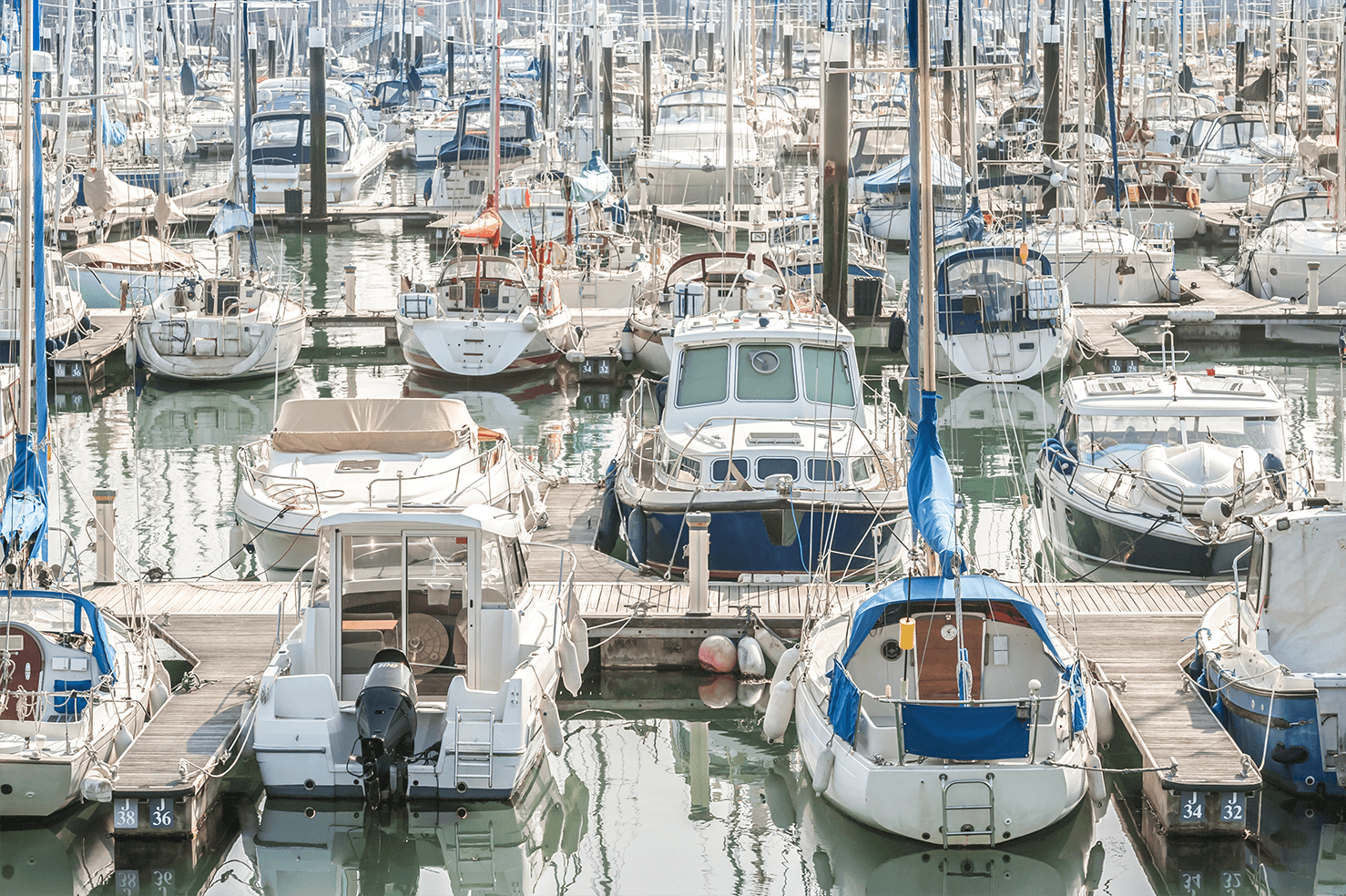Preparing your boat for the summer
The clocks have gone forward, spring is in the air, and – if you’re a boat owner – you’re itching to get out on the water. This is the time to go through the list of checks to ensure that you and your vessel are ready for the season.
If you’re responsible for your own mooring, check all the fittings, chains, strops and shackles before the season starts, to ensure they are in a good and safe state of repair.
If you have a marina berth, it’s still your responsibility to ensure the mooring strops, thimbles and shackles are maintained and fit for purpose.
Contact our 24-hour claims helpline
Within the UK: +33 1 45 1664 65
Outside of the UK: 0033 1 45 16664 65
To contact the local police, fire or ambulance service
In Europe: 112
In the USA: 911
In Australia: 000
View the full list of worldwide emergency telephone numbers.
Deck and Fittings
Repair any minor scratches and anti-foul and, unless they’re bronze, skin fittings have a shelf life of six years. Then, before starting your boat for the first time, fill your tank with the freshest, highest-quality fuel available and change the oil, ensuring it’s at the right level. And check:
-
- Stanchion, pulpits and lifelines for integrity
- Ground tackle, lines, fenders, etc.
- Chainplates and cleats
- Hull/deck joint
- Deck and windows for leaks
- Inspect anchor windlass and lubricate
- Clean and grease winches
- Check and lubricate blocks, pad eyes, etc
- Lights and lighting fixtures (including navigation lights) for leaks, make sure they’re working and that you have spare bulbs and fuses
- The engine compartment for excess water or oil in the bilges
- The battery is properly secured to the vessel
- For electrical issues such as loose, disconnected or corroded conductors/anodes
- Fuel tank for leaks, and ensure there is proper ventilation
- The fuel filters to make sure no water is present
- Pipes for wear and damage
- Propellers, and make sure they’re balanced correctly
- Seacocks (test and lubricate)
- Limber holes (and clear any debris)
- All hoses and clamps, and make sure below waterline hoses are double clamped
- Bilges pumps for automatic and manual operation
Your Electrical System
Inspect all wiring for wear and chafe, and
Recharge batteries and check battery water level
Make sure that your electrical connections are clean and lubricated for proper contact
Check that your vehicle is correctly grounded and safe to use
Ensure that all gauges are able to move freely and show accurate readings
Check that the vehicle's batteries function and charge correctly when connected to shore power.
Test any onboard electronics for faults, remove any faulty or frayed chargers
Check that all antennas are functioning correctly and are undamaged
Sailing boats
As a rule of thumb, rigging has a ten year shelf life, masts last up to 20 years unless it’s carbon or you race you boat. Check:
-
- Halyards and backstays for cracks, rust and general wear, and consider replacing or swapping them end for end
- Stays for fraying and ‘fish hooks’, plus forestay and backstay connections
- Sail track, rigging, turnbuckles and clevis pins for corrosion
- Masthead fitting and pulleys
- Check and lubricate roller furling
- Turnbuckles, cotter pins, and spreaders (and tape)
- Reefing points and reefing gear
- Battens and batten pockets
- Anodes
Below decks
- Head
- Water System
- Galley
Check that your head is:
-
- Lubricated and cleaned as necessary
- If equipped with treatment system, have chemicals on hand
- Y-valve operation with the valve labelled and secured
Check your water system, by:
-
- flushing the water tank
- checking the water system and pump for leaks
- checking hot water tank working on both AC and engines
- ensuring the tank cap keys are on board
- cleaning the shower sump pump screens
In the galley:
-
- fill the propane tank
- check the electric and manual valves
- make sure storage box vent is clear
- clean the fridge and check it operates on AC and DC
- clean stove and check that all burners and oven are working
Engines and Motors
Even if it was only used for a short time last year, have your engine pre-season serviced. You should have an engine maintenance log with, in particular, the date and hours of last oil changes. You should also check that the fuel lines, primer bulb and tank do not have leaks, and lubricate and spray all moveable parts.
- Outboard Motors
- Inboard engine
Replace the spark plugs and check:
-
-
-
- Plug wires for wear
- Prop for nicks and bends
- Gear lube
-
-
Ensure the good working order of the:
-
-
- Backfire flame arrestor
- Impeller
- Water strainer
- Bilge blower
-
Check and, if necessary, change:
-
- the engine anodes
- oil and filters and cooling system coolant (and make sure you have spare onboard)
- belts for tension
- transmission fluid
Trailers
-
- Ensure your trailer is legal, roadworthy and fit for purpose
- Check rollers and pads
- Check and lubricate wheel bearings
- Check and lubricate winch, tongue jack and wheel
- Check lights and electrical connections
- Check tyre pressure and condition
- Check brakes (if equipped)
- Check safety chains
- Check tongue lock
Ready to set sail?
It can take a little time, but a complete check of your boat now will mean that you have a summer of great sailing.
If you would like advice on the kinds of insurance you need, please get in touch
